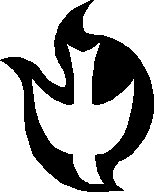ADDENDUM
Did Isaiah Speak in Tongues?
In the first letter to the Corinthians, Paul wrote:
20. Brethren be not children in understanding: howbeit in
malice be ye children, but in understanding be men.
21. In the law it is written, with men of other
tongues and other lips will I speak unto this
people; and yet for all that will they not hear
me, saith the Lord (I Cor. 14:20-21 KJV)
These words. quickened to Paul's mind by the Spirit, were taken from prophecy in
which Isaiah declares:
9. Whom shall he teach knowledge? and whom shall he
make to understand doctrine? them that are weaned
from the milk, and drawn from the breasts.
10. For precept must be upon precept, precept upon
precept; line upon line, line upon line; here a little,
and there a little:
11. For with stammering lips and another tongue will he
speak to this people.
12. To whom he said, This is the rest wherewith ye may
cause the weary to rest; and this is the refreshing: yet
they would not hear.
13. But the word of the Lord was unto them precept upon
precept, precept upon precept; line upon line, line
upon line; here a little, and there a little; that they
might go, and fall backward, and be broken, and snared,
and taken. [Italics mine]
Paul used Isaiah's prophecy to establish the fact that tongues were to be a sign
the unbelievers; however, he also pointed out that God said the unbelievers would
not hear or accept the sign.
The editors of the New International Version of the Holy Bible translated the
passage from Isaiah as follows:
9. Who is he trying to teach?
To whom is he explaining his message?
To children weaned from their milk,
to those just taken from the breast?
10. For it is:
Do and do, do and do,
rule on rule, rule on rule;
a little here, a little there.
[Hebrew: sav lasav sav lasav
kav lakav kav lakav--]
11. Very well then, with foreign lips and strange
tongues
God will speak to this people,
12. to whom he said,
"This is the resting place, let the weary rest";
and, "This is the place of repose"--
but they would not listen.
13. So then, the word of the Lord to them will become:
Do and do, do and do,
rule on rule, rule on rule;
a little here, a little there--
[Hebrew: sav lasav sav lasav
kav lakav kav lakav--]
so that they will go and fall backward,
be injured and snared and captured.
After translating verses 10 and 13:
For it is:
Do and do, do and do,
rule on rule, rule on rule;
a little here, a little there.
the editors add a very interesting footnote to verse 10:
(Hebrew / sav lasav sav lasav / kav lakav kav lakav
possibly meaningless sounds; perhaps a mimicking of the
prophet's words); also in verse 13. [I have placed their
remarks in italics in verses 10 and 13]:
In light of this footnote, a more accurate translation of Isaiah 28:9-13 in the
King James Version would be:
9. Whom shall he teach knowledge? and whom shall he make to
understand doctrine? them that are weaned from the milk, and
drawn from the breasts.
10. For it is:
sav lasav sav lasav
kav lakav kav lakav
11. For with stammering lips and another tongue will he speak to
this people.
12. To whom he said, This is the rest wherewith ye may cause the
weary to rest; and this is the refreshing: yet they would not
hear.
13. But the word of the Lord was unto them:
sav lasav sav lasav
kav lakav kav lakav
that they might go, and fall backward, and be broken,
and snared, and taken.
One night these passages from Paul and Isaiah were quickened to my mind
by the Spirit. As Isaiah was prophesying of how God would "cause the weary to
rest" and also provide a "refreshing" for them through "stammering lips and
another tongue," the prophet begans to speak in tongues (the "meaningless
sounds" of the translators of the New International Version). Paul declares that
"tongues" would be a sign that God was speaking to the people; however, they
would not hear or accept the sign. It appears that Isaiah was the first
"Pentecostal" or "Charismatic" preacher.

 | 

